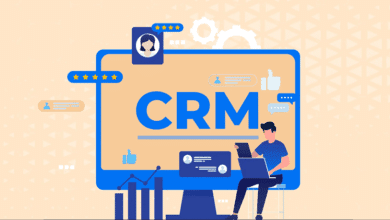Creative Strategies to Maximize Your Digital Marketing Budget

Key Takeaways
- Understand the significance of budget allocation in digital marketing.
- Learn practical strategies to maximize your marketing budget.
- Discover the benefits of using data-driven decisions.
- Explore examples and case studies of successful budget management.
Introduction to Digital Marketing Budgeting
Managing a digital marketing budget effectively is crucial for maximizing ROI. Whether you’re a small business or a large corporation, understanding how to allocate and optimize your marketing spend can make a significant difference. In this post, we’ll look into doable tactics to help you get the most out of your digital marketing spending. For instance, evaluating link building packages prices can help determine the best value for your investment.
It’s vital to recognize the evolving landscape of digital marketing, where efficient budget management can propel your campaigns to new heights. By incorporating data-driven strategies, businesses can ensure their marketing efforts align with overall goals and budgets. Marketers can make more informed decisions that yield better results by considering key metrics, historical data, and industry trends.
Importance of Budget Allocation
Allocating your marketing budget properly is crucial for your campaign’s success. A well-planned budget ensures you invest in the proper channels and strategies. Companies that allocate over 10% of their revenue to marketing see faster growth. Efficient budget allocation requires understanding your marketing objectives and the best ROI channels. It’s also important to regularly review and adjust spending based on performance metrics to maintain a dynamic marketing approach.
Effective Budget Management Strategies
To manage your budget effectively, consider using a mix of organic and paid marketing efforts. Focus on high-ROI activities such as content marketing, SEO, and social media. Google Analytics and similar tools may be used to monitor your expenditures and performance. Keep up with recent developments to ensure your money is spent wisely.
Content Marketing
Content marketing is a cost-effective strategy for businesses. Creating valuable content attracts and retains a defined audience, driving profitable customer action. Consistently releasing content establishes your company as an expert in the field, attracts organic traffic, and fosters authority and trust.
SEO
Search Engine Optimization (SEO) is a high-ROI activity that enhances website visibility, attracts organic traffic, and improves search engine rankings. It requires an initial investment but yields substantial long-term benefits.
Data-Driven Decision Making
Integrating data-driven decision-making into budget planning can improve efficiency and effectiveness. You can allocate your budget to the most profitable activities by analyzing past campaigns and customer data. Data-driven strategies optimize your budget and offer insights for future marketing initiatives, ensuring ongoing improvement.
Using Analytics
Utilizing analytics software like HubSpot or Google Analytics may yield insightful data on the effectiveness of your campaigns. These tools allow you to allocate your money to measure important indicators like website traffic, conversion rates, and customer behavior. By regularly reviewing analytics data, you can identify trends and adjust your strategies to improve results.
Customer Insights
Understanding your customers is critical to effective money management. You may use customer data analysis to identify preferences, behaviors, and buying patterns to modify your marketing activities better to meet your target market’s needs. This targeted approach not only increases ROI but also enhances customer satisfaction. For more accurate marketing plans, tools like customer relationship management (CRM) software can assist in gathering and analyzing this data.
Utilizing Cost-Effective Marketing Channels
Some marketing channels offer better ROI than others. Email marketing has a high return on investment and is relatively inexpensive. Similarly, investing in quality content and SEO can bring in organic traffic over time without ongoing costs. Your marketing budget will be most effective if you concentrate on these high-ROI channels without going overboard.
Email Marketing
Email marketing is potent for direct contact, product promotion, news sharing, and connection building. It drives engagement and conversion at a low cost. With proper segmentation and personalization, it can create highly engaging content that encourages action.
Social Media
Social media platforms offer cost-effective ways to reach and engage your target audience. Developing engaging content and utilizing sponsored advertisements may boost website traffic and brand recognition. Using social media’s valuable data and insights may improve your marketing tactics. Engaging with your audience can foster community and loyalty, turning followers into brand advocates.
Final Thoughts
Maximizing your digital marketing budget is about something other than spending more but more innovatively. You can significantly improve your marketing performance by focusing on high-impact activities, leveraging data for decision-making, and choosing cost-effective channels. To guarantee the best outcomes, it’s important to remain knowledgeable, be flexible, and measure and adjust your tactics frequently. Employ these strategies to keep your budget in check and drive better outcomes for your business.

